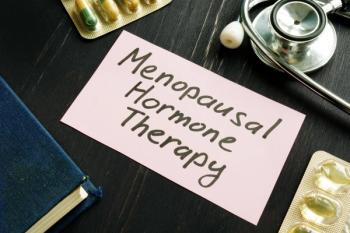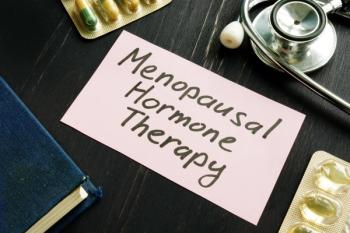
Women's Health
Latest News
Latest Videos

Shorts

Podcasts
CME Content
More News

HHS has initiated removal of black box warnings on hormone replacement therapy, citing its advantages to women's health, but also drawing pushback.

Lisa Taylor-Swanson, PhD, explains how including Indigenous and Hispanic women in conversations around menopause care helps fine-tune interventions.

Despite social media frenzy, there is limited evidence around testosterone’s impact on muscle, mood, and other menopausal symptoms.

Attorney General Ken Paxton claims the manufacturers marketed acetaminophen toward pregnant women despite the “known dangers” to unborn children.

New data reinforce elinzanetant’s safety, efficacy, and ability to improve sleep disturbances in menopausal women, independent of vasomotor symptom relief.

Early and lifelong trauma can intensify menopause symptoms and accelerate cardiovascular and brain aging, according to research.

Preclinical data suggest a possible synergistic interaction between estrogen and GLP-1 signaling, explains Regina Castaneda, MD.

Elinzanetant offers a new hormone-free solution for managing menopause-related hot flashes, targeting the root cause of vasomotor symptoms.

Treating vasomotor symptoms, sleep disturbance, and mood disorders can remove barriers to weight loss for women during menopause, experts say.

Which hormonal contraceptives are still safe, when should women stop using them, and what other benefits do they offer during the menopause transition?

Different cultural, linguistic, and systemic barriers could impact how Indigenous and Hispanic women access menopause care, said Lisa Taylor-Swanson, PhD.

Can women feel relief from tinnitus and burning mouth syndrome during perimenopause and menopause?

Experts also explained how hormone therapy can benefit women managing chronic conditions such as diabetes and hypertension on top of their menopause.

Telehealth medication abortion service requests double after the Supreme Court's Dobbs ruling, as patients seek accessible and cost-beneficial care.

Researchers will present new findings on how menopause affects cardiovascular, brain, metabolic, and digestive health.

Education on birth control and its potential adverse effects is vital to women choosing the type that best suits them.

Lindsey Valenzuela, PharmD, explains how value-based models empower a single pharmacist to manage multiple layers of these disease states.

Lindsey Valenzuela, PharmD, explains how pharmacists can prevent drug interactions and improve coordination for women with arrhythmia and chronic disease.

Research reveals that Medicaid accountable care organization (ACO) designs significantly impact maternal health outcomes, highlighting the importance of structural partnerships in care delivery.

Louisiana and Mississippi had the highest rates of maternal and child mortality in the country, respectively.

From 2017 to 2023, women were especially underrepresented in trials in arrhythmia, coronary heart disease, acute coronary syndrome, and heart failure.

Fetal alcohol syndrome (FAS) is 100% preventable as an environmental cause of intellectual disability and represents the most severe form of fetal alcohol spectrum disorder.

This retrospective analysis explored the impact of infertility health benefit design on the use of infertility medications and procedures and pregnancy outcomes.

The Commonwealth Fund’s updated July 2025 brief on maternal mortality highlights how systemic disparities, Medicaid coverage gaps, and behavioral health challenges continue to drive poor maternal and infant outcomes across the United States.

Access to obstetric care declined across the US, especially in rural areas, with more than 7 states seeing more than 25% of hospitals lose obstetric services from 2010 to 2022.























